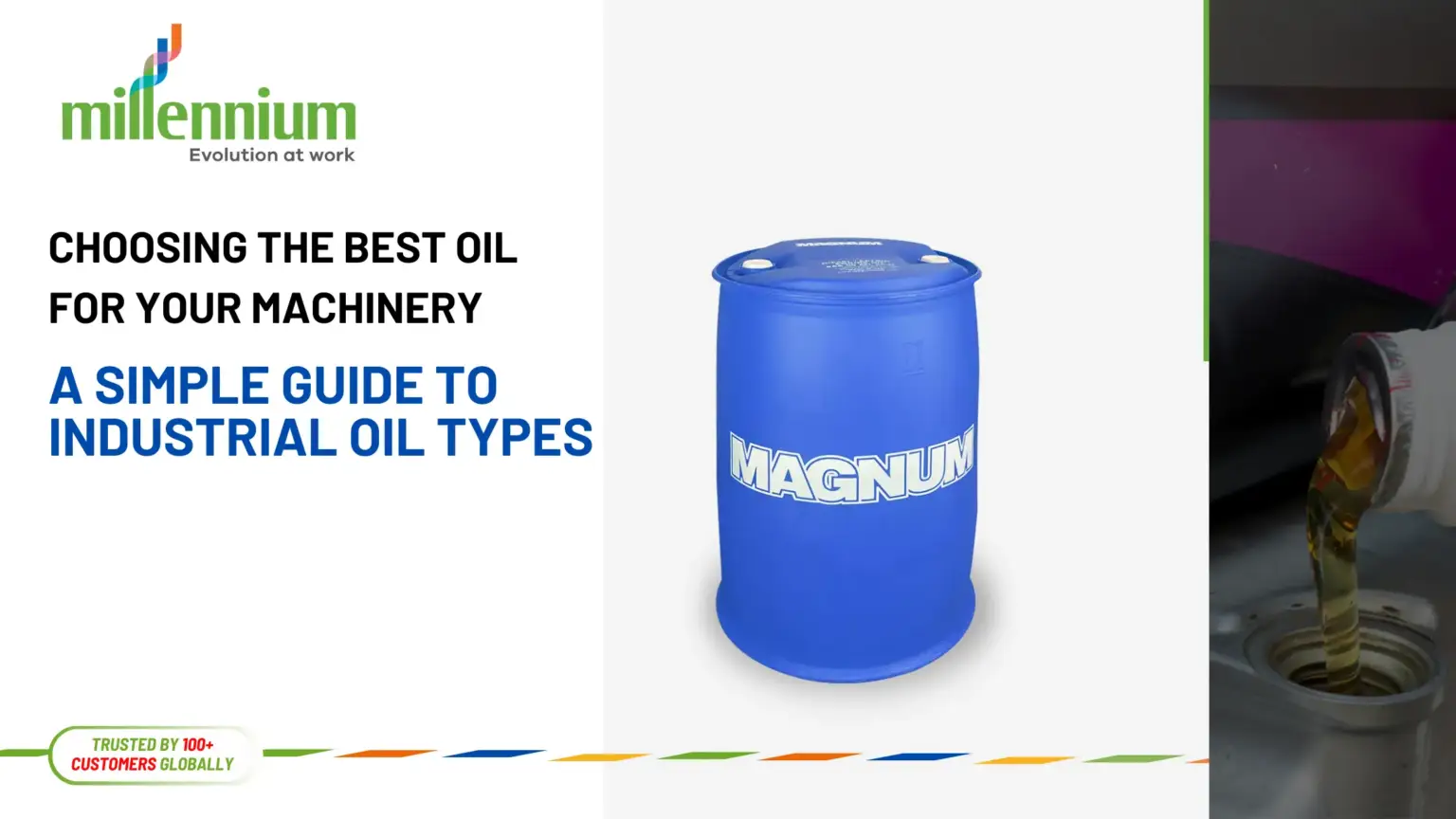Selecting the right oil for your machinery is a critical decision that directly impacts the performance, efficiency, and lifespan of your equipment. With a wide variety of industrial oils available, understanding the different types and their specific applications can be overwhelming. This guide simplifies the process, helping you make an informed choice to ensure your machinery operates at its best.
Understanding Industrial Oil
Industrial oil is a lubricant used in various types of machinery and equipment to reduce friction, wear, and heat. These oils play a vital role in maintaining the smooth operation of machines, preventing metal-to-metal contact, and protecting components from corrosion and contamination. Proper lubrication minimizes downtime, reduces maintenance costs, and extends the life of the machinery.
Industrial oils are formulated to meet the specific needs of different machines, taking into account factors such as operating temperature, load, speed, and environmental conditions. Choosing the right oil involves understanding these factors and selecting a product that meets the exact requirements of your machinery.
What Industrial Oil is and its Significance in Machinery Operation
Industrial oils are crucial in various sectors, including manufacturing, construction, mining, and transportation. They are used in engines, hydraulic systems, compressors, gears, and bearings. The significance of industrial oil in machinery operation cannot be overstated; it ensures that machines run smoothly, efficiently, and reliably.
The right industrial oil reduces wear and tear, preventing costly breakdowns and extending the lifespan of equipment. It also enhances energy efficiency by reducing friction, which, in turn, lowers operational costs. Moreover, industrial oils help in dissipating heat generated during operation, preventing overheating and ensuring consistent performance.
How to Choose the Right Industrial Oil?
Choosing the right industrial oil involves considering several factors, including:
- Machine Specifications: Review the machinery’s manual for the manufacturer’s recommended oil type and grade. This is often the best starting point for selecting the appropriate lubricant.
- Operating Conditions: Consider the operating environment, including temperature, humidity, and exposure to dust or chemicals. High-temperature environments may require oils with higher viscosity and thermal stability, while cold conditions may necessitate oils with lower viscosity for better flow.
- Load and Speed: The load and speed at which your machinery operates will influence the oil’s viscosity. Heavy loads or high-speed operations may require oils with higher viscosity to provide adequate lubrication.
- Oil Type: Choose between mineral-based, synthetic, or semi-synthetic oils. Synthetic oils offer better performance and longevity, particularly in extreme conditions, but may come at a higher cost. Mineral oils are more economical and suitable for standard operations.
- Additives: Consider oils with additives that enhance performance, such as anti-wear agents, corrosion inhibitors, and detergents. These additives improve the oil’s ability to protect and maintain the machinery.
Step-by-Step Guide on Selecting the Best Industrial Oil for Machinery
- Identify the Machinery’s Requirements: Start by identifying the specific lubrication requirements of your machinery, including the recommended oil type, viscosity, and any special conditions like temperature or load.
- Evaluate Operating Conditions: Assess the operating environment to determine if standard oils will suffice or if specialized oils are needed to handle extreme conditions.
- Choose the Oil Type: Decide whether a mineral-based, synthetic, or semi-synthetic oil is most suitable based on performance needs and budget.
- Consider Additives: Select oils with the necessary additives to enhance performance, reduce wear, and extend the oil’s service life.
- Check Compatibility: Ensure that the selected oil is compatible with existing oils and machinery components to prevent any adverse reactions.
- Consult with Experts: If unsure, consult with lubrication experts or the machinery manufacturer for advice on the best oil choice.
Industrial Oils: Uses and Applications
Industrial oils are used in a wide range of applications, each requiring specific oil types. Some common applications include:
- Hydraulic Systems: Hydraulic oils are used to transmit power in hydraulic machinery. They require high viscosity index and good thermal stability.
- Gear Systems: Gear oils, often containing extreme pressure (EP) additives, protect gears from wear and corrosion under high loads.
- Compressors: Compressor oils lubricate and cool compressor components, requiring excellent oxidation stability and moisture resistance.
- Engines: Engine oils lubricate internal combustion engines, demanding oils with high detergent and dispersant properties to keep engines clean.
Importance of Proper Industrial Oil Maintenance
The importance of proper industrial oil maintenance is essential to ensure its continued effectiveness. Regularly monitoring oil levels, checking for contamination, and replacing oil according to the manufacturer’s guidelines are crucial steps. Using the wrong oil or neglecting oil maintenance can lead to increased wear, overheating, and ultimately, machinery failure.
Conclusion
Choosing the best oil for your machinery is a vital decision that impacts performance, efficiency, and longevity. By understanding the types of industrial oils, their specific applications, and how to select the right one, you can ensure that your machinery operates smoothly and efficiently. Regular maintenance and careful monitoring of your industrial oil will further protect your equipment, reduce downtime, and extend its operational life.
